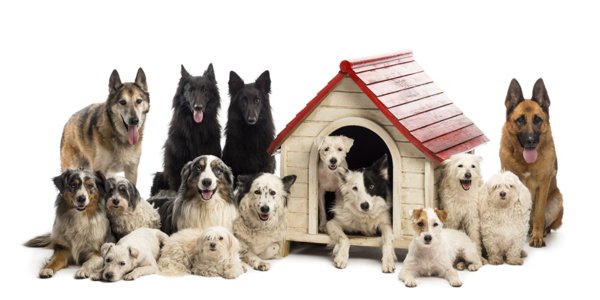Genes affect our desire to own a dog
Researchers at Uppsala University and Karolinska Institutet in Sweden have studied the heritability of dog ownership using information from more than 35,000 twin pairs from the Swedish Twin Registry. The results, which are published in the journal Scientific Reports, indicate that an individual’s genetic make-up has a great influence on whether they choose to acquire a dog.

In collaboration with British scientist, the researchers compared the genetic make-up of twins with dog ownership to determine whether dog ownership has a heritable component.
“We were surprised to see that a person’s genetic make-up appears to be a significant influence in whether they own a dog,” says Tove Fall, lead author of the study, and Professor in Molecular Epidemiology at the Department of Medical Sciences and the Science for Life Laboratory, Uppsala University. “As such, these findings have major implications in several different fields related to understanding dog-human interaction throughout history and in modern times. Although dogs and other pets are common household members across the globe, little is known how they impact our daily life and health. Perhaps some people have a higher innate propensity to care for a pet than others.”
Studying twins is a well-known method for disentangling the influences of environment and genes on our biology and behaviour. Because identical twins share their entire genome, and non-identical twins on average share only half of the genetic variation, comparisons of the within-pair concordance of dog ownership between groups can reveal whether genetics play a role in owning a dog.
The researchers found concordance rates of dog ownership to be much larger in identical twins than in non-identical ones. Genes appeared to account for more than half of the difference in dog ownership.
“These kind of twin studies cannot tell us exactly which genes are involved, but at least demonstrate for the first time that genetics and environment play about equal roles in determining dog ownership,” says Patrik Magnusson, senior author of the study and Associate Professor in Epidemiology at the Department of Medical Epidemiology and Biostatistics at Karolinska Insitutet, and Head of the Swedish Twin Registry. “The next obvious step is to try to identify which genetic variants affect this choice and how they relate to personality traits and other factors such as allergy.”
Financial support was provided by the Swedish Research Council for Environment, Agricultural Sciences and Spatial Planning (Formas), and from the Agria and SKK Research Foundation. The Swedish Twin Registry is managed by Karolinska Institutet and receives funding through the Swedish Research Council.
This news article is based on a press release from Uppsala University.
Publication
“Evidence of large genetic influences on dog ownership in the Swedish Twin Registry has implications for understanding domestication and health associations”. Tove Fall, Ralf Kuja-Halkola, Keith Dobney, Carri Westgarth, Patrik K.E. Magnusson. Scientific Reports, online 17 May 2019, doi: 10.1038/s41598-019-44083-9.
